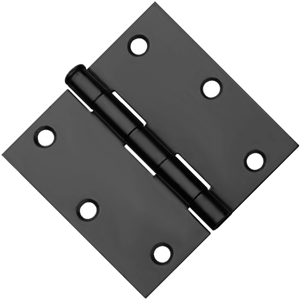
When upgrading doors, gates, cabinets or access panels with hinges, you may want to use soft-close hinges. Hinges are mechanical bearings that allow for a limited angle of rotation with the surface on which they are installed. They typically consist of two leafs that, when interlocked together, form a knuckle in the center. Once installed on a surface such as a door, hinges will allow you to open the door by rotating it away from the adjacent frame. Soft-close hinges, however, feature a unique design that distinguishes them from other types of hinges.
Overview of Soft-Close Hinges
Soft-close hinges are designed to absorb any excess closing force. As their name suggests, they “close softly.” Even if you forcefully push the door shut, soft-close hinges will slow it down prior to fully closing.
How Soft-Close Hinges
Soft-close hinges feature a dampening mechanism that slows them automatically. Some of them, for example, use a fluid-filled hydraulic cylinder. When you push the door shut, the fluid will move through a valve where its flow is restricted. This creates resistance that slows down the door.
Soft-close hinges may use a dampening spring. As the door approaches its fully closed position, the spring will create resistance that slows it down. The door will still close — the resistance from the spring simply slows it down so that the door doesn’t slam.
Why Choose Soft-Close Hinges
With their ability to absorb excess closing force, soft-close hinges offer several benefits. They are typically quieter than traditional hinges. Traditional hinges will allow doors to slam shut, which can be loud. Soft-close hinges promote a quieter closing operation by slowing the door as it closes.
Soft-close hinges also protect doors and other surfaces from damage. Slamming a door shut may result in damage. The door itself may sustain damage, or the frame may sustain damage. With soft-close hinges, damage is less likely to occur since the door will slowly close.
Soft-Close vs Self-Close Hinges
In addition to soft-close hinges, there are self-close hinges. Self-close hinges are characterized by their ability to close on their own. Once installed on a door, you won’t have to push the door shut. After opening the door and letting it go, the self-close hinges will close it. Soft-close hinges, on the other hand, are designed to absorb excess closing force right before the door fully closes.
Most soft-close hinges are, in fact, self-close hinges. If a hinge has a soft-closing mechanism, it will likely close on its own. Nonetheless, some hinges only have a soft-closing mechanism, whereas others only have a self-closing mechanism.
